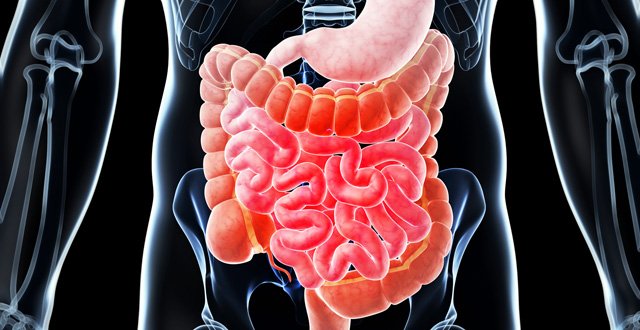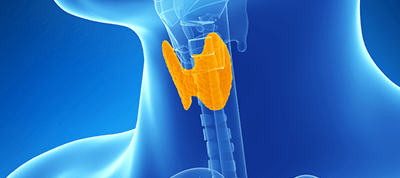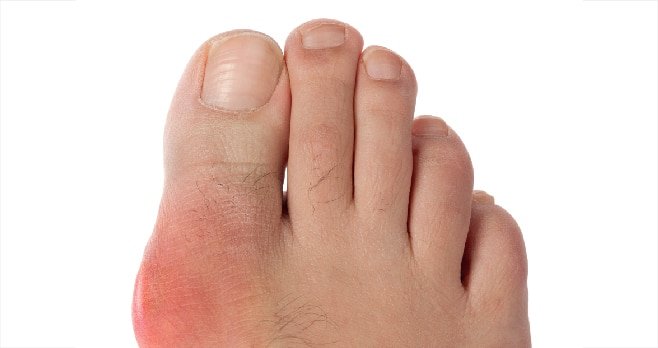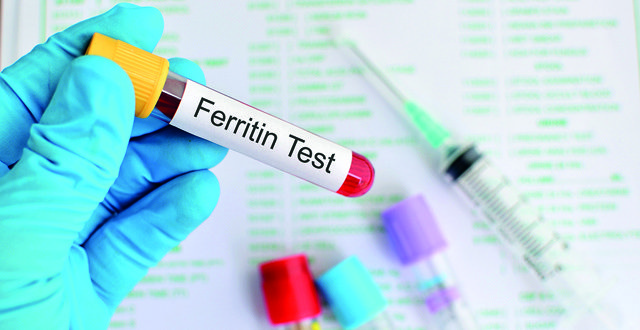The Back to IBD School session featured contributions from:
Dr Anthony O’Connor, Consultant Gastroenterologist, Tallaght University Hospital, on the IBD patient’s journey.
Dr Alex Concannon, Clinical Psychologist, Tallaght Adult Mental Health Centre, on the psychological aspects of coping with IBD.
Ms Elaine Neary, CORU-registered Clinical Specialist Dietitian in Gastroenterology, Tallaght University Hospital, on healthy eating, diet and nutrition for patients with IBD.
<div> <h3><strong>Dr Anthony O’Connor </strong>outlines why the hospital’s IBD School is such an important resource for patients<strong></strong></h3> </div>
The challenges faced by patients with inflammatory bowel disease (IBD) are manifold. Apart from the obvious physical manifestations, there are considerable social and psychological challenges. The achievement of educational and career goals may be compromised, as may hobbies involving sports and exercise. There may be significant financial challenges, not least obtaining insurance cover, as well as more obvious facets, like lost income and time off work.
At least 20,000 people in Ireland are affected by IBD and more recent epidemiological data has provided a signal that the estimated prevalence of the condition in Ireland is probably underestimated. What is not in dispute is that the incidence of IBD worldwide is on the rise. This trend is most notable in Asia, where the influences of diet, a growing middle-class and urbanisation have been posited as reasons as to why incidence is rising exponentially.
<img src=”../attachments/a61e8069-4de4-4146-8f93-4e85eb58c6ea.JPG” alt=”” />
<strong>Dr Anthony O’Connor</strong>
The IBD School at Tallaght University Hospital aims to equip patients to rise to those challenges by delivering focused, disease-specific information for patients and their families, delivered in an Irish context around the holistic aspects of the IBD journey. The two most common forms of the condition, Crohn’s disease (CD) and ulcerative colitis (UC), share many common factors in terms of symptomatology and disease course but also have key differences in terms of treatment and prognosis, and thus on the impact a patient can expect their condition to have on their lives.
The key tenet of how IBD is managed at Tallaght University Hospital is to enable the patient to access the full range of experiences possible in their lives by pursuing the deepest level of remission practicable. For that reason, the medical talks delivered at the School focus on the entirety of the IBD patient journey. This begins with diagnosis.
Delays in diagnosis are a frequent source of frustration for IBD patients worldwide and there are specific problems inherent to Ireland around the difficulty patients experience in accessing outpatient appointments and the paucity of diagnostic tests available to our colleagues in primary care. The role of non-invasive investigations, such as stool calprotectin, CRP and FBC, is carefully outlined to patients, both in order to disseminate this knowledge to their relatives who are at greater risk of developing the conditions and also to introduce these investigations and concepts to the patients as they will form and are playing a growing role in the ongoing monitoring and treatment decisions that will occur over the course of their care.
Leading onto care of the IBD patient themselves at Tallaght, we divide our management into acute care referencing factors, such as the hopefully limited and infrequent use of corticosteroids and surgery; the maintenance of wellness and function by explaining to the patient the means to and importance of optimising medications to maintain remission and mucosal healing; and finally, routine health management, with particular reference to vaccination and cancer screening.
Concepts such as extraintestinal manifestations of IBD and the progressive nature of the conditions are also explored. The medical aspects of the IBD School talks are specifically designed to complement the team nature of how IBD is managed, with interaction from medical and nursing specialists in IBD, surgery, primary and secondary care, ward nurses, radiologists and pathologists, dietitians and a myriad of other professionals. The School has a large emphasis on dietetic and clinical psychology input, as these are some of the areas that IBD patients in Ireland have the greatest difficulty accessing.
Patients in the modern digital age are exposed to a considerable amount of unregulated online information about their conditions, ranging from reputable sources such as health authorities and hospitals, to online blogs and forums and predatory practitioners. For that reason, improving the literacy of our patients around their conditions is of paramount importance. We are delighted at Tallaght University Hospital to be able to provide this educational opportunity with the financial support of the Adelaide Health Foundation via a new initiatives grant to run for a period of three years. We have just completed year one of the programme and with support from the local and national media and the Irish Society for Crohn’s and Colitis (ISCC), have attracted large attendances and gotten excellent feedback.
The ability to provide this information to patients in an independent manner without influence from commercial interests is of paramount importance and we would be keen to express how positive this experience has been for us to any other centres that may be considering such an initiative.
<div> <h3><strong>Dr Alex Concannon </strong>highlights the important connections between psychological wellbeing and IBD</h3> </div>
The importance of psychological wellbeing may not be the first thing people associate with positive outcome and quality of life in IBD. However, a diagnosis of chronic illness such as IBD is often experienced as a crisis or turning point in people’s lives. As such, IBD can have a significant impact on people’s emotional wellbeing. People may experience a range of emotional responses relating to a diagnosis of IBD. The type of response may depend on what stage of diagnosis they are at. Pre-diagnosis may be a time of worry and frustration and after diagnosis, people may respond with anger, shock, sadness, relief or denial. IBD School invites people living with IBD to consider how their illness has affected them emotionally. It also introduces some key concepts to help maintain positive psychological wellbeing.
IBD can lead to a number of difficulties, which can impact on people’s emotional state, such as fatigue, pain and changes with body image. Fatigue is associated with difficulties with concentration, communication, low energy and reduced memory functioning. As a consequence, fatigue may impact on a person’s ability to function in their personal, social and work lives, and so cause people to become isolated and significantly impacts on their mood.
Pain can have an impact on sleep and ability to tolerate stress, so is strongly linked to changes in mood and reduced quality of relationships. Change in body image can occur as a result of surgery, when adapting to stomas, or resulting from changes in appearance due to treatments such as steroids. Reduced satisfaction in body image can lead to shame about symptoms of the illness, which can lead avoidance and isolation. Body image concerns can also cause people to feel less desirable, leading to difficulties with intimacy in existing relationships and anxiety in engaging in new relationships. In IBD School, these experiences are normalised and the message provided is that there is no one typical emotional response to IBD. People can feel a range of emotions, all of which are a normal part of the process of dealing with a condition such as IBD.
IBD School reminds people that emotions are a normal part of human experience and are only a difficulty if they are experienced too intensely or for too long. When emotions become overwhelming, people may feel increased feelings of hopelessness, guilt or shame, a person’s quality of life may become affected, and psychological difficulties are more likely. Reduced psychological wellbeing can impact on peoples’ ability to manage their treatments and may exacerbate physical symptoms in the person with IBD. In IBD School, warning signs of psychological difficulties are discussed, including the symptoms of common comorbid mental health difficulties with IBD, such as depression and anxiety disorders. Emphasis is placed on how these differ to the normal experience of feeling ‘down’ or worried.
Emotions can cause people to act in ways that do not always meet their emotional needs. For example, withdrawal in response to sadness can lead to isolation and loneliness when what is needed is connection and soothing. In IBD School, ways that people can support their emotional wellbeing are discussed. For some people with IBD, it is important to focus on the development of a greater balance between activities such as work, rest and play. Some people try to cope with painful emotions by keeping themselves busy or doing things for others; these people may need more time for rest and relaxation, while others who may be out of work or college as a result of symptoms of the illness may benefit from opportunity for achieving a greater sense of mastery and pride. Increased opportunity for fun and pleasure may be nurturing for many people with IBD to support emotional wellbeing, especially if favoured activities have decreased as a result of IBD symptoms.
The importance of self-care is also highlighted. Self-care can take the form of looking after physical needs such as sleep, regular food, medication and avoidance of harmful substances. However, it may also be important to include a focus on people’s emotional wellbeing. In order to care for ourselves emotionally, we need to be aware of our needs and tune into ways to nurture ourselves. This may involve more assertive communication to get our needs met, such as saying ‘no’ or asking for something we need, focusing on soothing ourselves when we are distressed, or it may be about reaching out for the connection and support others can provide. In IBD School, people are encouraged to make contact with their medical team or GP if they feel they need access to additional emotional supports.
Finally, the journey towards adjustment to IBD is discussed as a means of fostering a sense of hope. Research has shown that people move closer to adjustment to illness by learning about their illness, understanding their treatment plan and treatment options. The concept of acceptance is introduced in IBD School. Acceptance does not mean people agree with, condone or like what has happened, but it can free people up and stop them wishing things were different and being angry at the ‘should’ and ‘should nots’. As people move closer to acceptance, the more they can change what can be changed, and find ways to live with the things they cannot change. One of the aims of IBD School is to support people to move towards a stage of adjustment to their IBD and foster their psychological wellbeing throughout this process.
<div> <h3><strong>Ms Elaine Neary </strong>discusses nutritional issues in IBD<strong> </strong></h3> </div>
Nutrition is high on the agenda for those with and those treating IBD. The ISCC surveyed their members in 2015 and it showed that 34 per cent were using some form of alternative, non-medical treatment. Of the 34 per cent, 71 per cent were using dietary management and 57 per cent felt diet could be a trigger of their symptoms. A majority, 61 per cent, believed that IBD specialists disregarded the importance of diet, which is a poor reflection on my pro-nutrition colleagues. IBD School addresses that ubiquitous question at IBD clinics — ‘doctor, what can I eat?’
There is an increased risk of developing malnutrition in this population. IBD School explains the multifactorial cause. IBD is an anorexigenic disease due to increased pro-inflammatory cytokines IL-18 and TNF alpha, which, along with altered GI hunger hormones GLP and leptin, make it counterintuitive to eat. There is also a huge fear of eating, otherwise known as sitophobia, which is understandable, given the chronic GI symptoms these patients face. Fatigue is extreme and extra GI manifestations, such as arthritis, can hinder food preparation. Discomfort while eating due to recurring mouth ulcers can reduce oral intake, while unnecessary, self-imposed dietary restrictions can compound malnutrition from other causes, such as increased nutrient losses and surgery. Studies show that up to 85 per cent of hospitalised patients suffer from protein energy malnutrition.
<img src=”../attachments/33f01c53-ea21-4f2e-9b7c-8c7c9e29fcfc.JPG” alt=”” />
<strong>Ms Elaine Neary</strong>
IBD is a heterogeneous group, so wide variations in rates of malnutrition can be reported due to differences in assessment criteria, disease type, severity and phenotype. Crohn’s appears to have a greater nutritional insult than UC, with higher rates attributed to it when we look at each condition separately — CD 80 per cent, UC 18-to-62 per cent. Up to 75 per cent of our patients experience weight loss and 50 per cent present with negative nitrogen balance. Consequences of such under-nutrition include post-operative anastomotic leakage seen in those who lose greater than 5kgs weight prior to surgery and septic complications following GI resections.
Malnutrition spills over into quiescent disease or remission too, with approximately 40 per cent of patients overweight but malnourished in other ways. This is not a good trend and patients should no longer be encouraged to have a ‘buffer’ of excess weight between flares. IBD patients who are overweight have been found to be more prone to developing active CD and require surgery sooner. Body composition is also affected by the disease. Lean body mass (LBM) and muscle function are significantly reduced even in remission, which is a known predictor of osteoporosis. Body fat distribution differs too — a depletion of visible fat and increase in intra-abdominal fat over time may play a role in the inflammatory process.
So, as in many other chronic diseases, obesity is the new face of IBD. We are seeing less of the classic underweight presentations, therefore it is harder to spot malnutrition but it is there and most certainly worsening the disease course of our patients. IBD School shows patients where their weight should be and how to maintain it within a healthy range through mindful eating and exercise.
IBD medications may affect body composition. Steroids increase fat mass, fluid retention, and create a false appetite. We discuss the need for patients to receive counselling on these side-effects prior to starting a course of steroids, particularly in those who are already overweight or obese and are keen to reduce or maintain weight. We also acknowledge how some medications have positive or synergistic effects on nutritional status. Infliximab (IFX) or remicade determines weight gain and corrects malnutrition by achieving remission. Enteral nutrition providing more than 600kcals of nutritional requirements daily leads to a sustained response to IFX.
It is unknown if patients lose response to biologics due to reduced nutritional status or vice versa but we know that biologics are carried on albumin. Levels of albumin are therefore important but are more an indication of a heightened inflammatory process rather than nutritional status.
In 2009, the UK IBD standards group stated “all IBD patients should have access to a dietitian with a specialist interest in IBD”. This had not been met by 2013. In the UK IBA Audit 2006, they audited 75 per cent of UK hospitals where the median number of dietitian sessions dedicated to gastroenterology was two per week. Only 52 per cent of patients admitted with CD were weighed and only 37 per cent were seen by a dietitian. The standards recommend minimum staffing of 0.5 whole-time equivalent (WTE) dietitians per 250,000 population. This works out at a caseload of 1,000 per 0.5 WTE for the 24,0000 patients with IBD in the UK, which seems grossly inadequate, given the aforementioned nutritional consequences of this disease. There is one clinical specialist dietitian post and a handful of senior dietitians specialising in gastroenterology in Ireland, so numbers here are also insufficient to deal with the rising incidence of IBD. Infrastructure needs to be improved for patients so we can impact rates of malnutrition. Outreach initiatives like the IBD School are part of the solution.
At the IBD School, patients learn about the two main roles diet plays in their condition — adjuvant and primary therapy. Basic nutrition support is adjuvant or supportive therapy and is used to prevent and treat malnutrition in both Crohn’s and UC. Exclusive enteral nutrition (EEN) can be used as primary therapy to achieve remission in patients with an acute exacerbation of CD in selected cases. EEN in the form of a polymeric formula is administered orally or via nasogastric tube for a minimum of 10 days for a duration of four-to-six weeks, with close dietetic supervision. Bridging EEN can be used as primary therapy until a medication takes effect or during medication-free periods prior to surgery. Parenteral nutrition (PN) should not be used as primary treatment of inflammatory luminal CD. Bowel rest has not been proven to be more efficacious than nutrition per se. The most common indication is the presence of short bowel syndrome. PN is indicated for those who are malnourished, have inadequate or unsafe oral intake, or a non-functioning, inaccessible or perforated gut. Specific indications include obstruction and high intestinal or fistulae output.
The limitations of diet are clearly defined at IBD School. Diet can contribute to and/or ease symptoms, but it does not directly cause a flare. It can induce remission in carefully-selected cases but it must not replace medications if they are prescribed. Nutrition support can maximise nutritional status of patients and has been shown to optimise response to medical treatments. It cannot cure IBD, but there is evidence to show diet may prevent IBD developing in the first instance.
IBD School teaches patients that no ‘one size fits all’ and that nutritional intervention will be tailored to the individual. Patients are encouraged to own their IBD — ‘My IBD’ — as there are many variations of the same disease, warranting different dietary approaches. Dietary advice depends on type of IBD, phenotype, location, severity, previous surgeries, symptoms, nutritional status and comorbidities. We discuss nutritional considerations, such as fibre, iron, calcium, vitamin D and probiotics, as well as new horizons, such as renewed interest in the positive effects of curcumin and the deleterious effects of emulsifiers. There are many misconceptions about diet for IBD that we try to correct at IBD School.
Not all dietary therapies used by patients are evidence-based. Due to gaps in research, patients are seeking their own ‘cure’. Interest in diets such as the specific carbohydrate diet (SCD), gut and psychology syndrome (GAPS) and paleo is growing, along with the popularity of gluten-free and the low FODMAP diet. Diet is inextricably linked to IBD because of GI tract involvement, so the processes of digestion and absorption are also explained during the session to demonstrate what happens when they eat.
Refer to www.INDI.ie to find a dietitian.
<strong>References available on request</strong>










Leave a Reply
You must be logged in to post a comment.